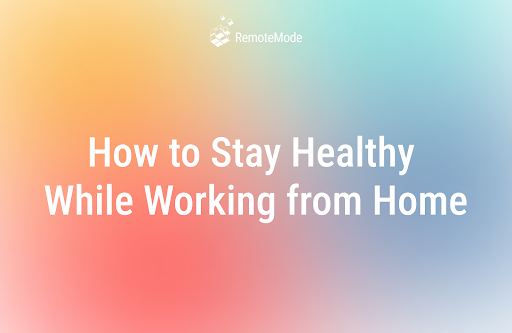You Got a Job Offer! Now What Do You Do?

Getting a job offer can be an incredible, even a surreal, experience, especially if you waited weeks or months for it. The mere fact that an offer is presented may lead you to accept it immediately. If this is your first real opportunity to jump into the career you’ve trained for, you may be tempted to grab it and run with it. Who knows when another chance like this will come along, right? But don’t be too hasty. You should be aware of certain things before accepting any job offer.
Your first step is to look at the company and its goals. Do they align with your own? Will this company support your growth as a professional? If so, then congratulations! You've found your dream job. But if not, don’t discard the offer out of hand. Few jobs are perfect fits. Consider each individual aspect of the offer, from the job description, to the salary, to the benefits. Decide whether this job could be a stepping stone to help you grow as a professional. Or is the prospective employer simply looking for a way to take advantage of your inexperience?
This article discusses job offers and the ways in which you can receive one. It also covers what to do once you get one, as well as tips on how to decide whether or not to accept it.
Job offer defined
When an employer offers a job, it means they want to hire you for a particular paid position. Although a job might just fall in your lap, the offer usually comes as the result of your job search. You may be anxious to stop looking and start earning. That’s understandable. You didn’t get training to search for a job, you trained to do a job. And now you want a chance to use your skills in gainful employment. A job offer opens that door for you.
The first thing to consider is whether the offer is verbal or in writing. It’s an exciting moment when a hiring manager calls you and tells you they are ready to hire you. But nothing is official until you get it in writing. Respond to a verbal offer with a polite expression of interest, but then add,
I’m looking forward to considering the details of your offer. When can I expect to see it in writing?
The following details are typically included in written job offers:
- Terms and conditions, i.e., under what terms is the offer being extended and under what conditions are you being hired.
- Role or position, sometimes called job title.
- Job description, duties, and responsibilities.
- Proposed salary.
- Allowances.
- Benefits, such as medical insurance, 401K savings plans, and holiday pay.
- Perks, i.e., non-monetary benefits, such as the remote work policy, use of a company vehicle, and so forth.
- Bonuses, when they are paid, and under what conditions.
- Paid time off and leave.
- Name and title of reporting manager.
- Expected work hours or schedule.
- Work location, which may include a hybrid arrangement of certain days in the office plus other days at a remote location.
- Date of employment, duration of contract.
- Employment details and other relevant information.
As you can see, a job offer may contain a great deal of information for you to think about.
Evaluate the job offer
To make sure you take optimal advantage of a job offer, don’t accept it right away. Allow yourself time to examine the offer and ask questions, address concerns, or make requests. Employers generally don’t expect an immediate answer. In fact, they may question your judgment if you take a job offer too quickly and then ask questions or ask for things later on.
Don’t be afraid to negotiate with the company before accepting their offer. Ask them questions about the position and how your experience will benefit them. If they are unable to answer your questions, they may not be serious about hiring you. Be sure you have access to all the information you need before signing anything!
Negotiate
Most companies are willing to negotiate salary when they find the right candidate. Second and third choices are usually lined up by recruiters, but they are never as good as their first pick. If you are candidate No. 1, you usually have negotiating room. While companies must adhere to their budgets, salary negotiations are an integral part of hiring.
When negotiating your salary with the employer, be aware of the fact that they want you. They know the value of your services. You should likewise know the value of your services. Don’t negotiate simply for the sake of negotiating. If the company has made you a fair offer that is in line with your market research, don’t feel that you have to quibble.
If you are satisfied with the salary, consider other areas of negotiation. Some benefits are immutable by company policy, but other options may be open to discussion. For instance, you may be able to forgo medical insurance in order to receive a better bonus package.
And don’t settle for a verbal acknowledgement of the final terms of the offer. Ask the employer to send you an updated offer letter that includes the revised terms and agreements.
Respond in writing
Just as you should expect an official offer to come to you in writing (either hardcopy mail or email), you should respond in kind. Sometimes the written offer letter may include an Acceptance section at the end, where you can sign and date and check a box that says you accept the offer.
If your letter doesn’t include a response section, it is appropriate for you to write a response letter. Address it to whomever sent you the offer letter. Reference the offer, including the job title, anticipated start date, salary, and other terms of the offer that you feel are particularly pertinent. State clearly that you accept this offer. Express your pleasure and excitement to begin working for the company in the offered position. And don’t forget to sign and date the letter.
After accepting the job offer
Now that you've officially accepted your job offer with a written response, keep two things in mind:
- You don’t just sign the contract and get started. Before you become an employee, the company’s Human Resource Department will have some paperwork for you to fill out. At a minimum, your new employer will require you to fill out forms that identify your tax payer ID and your citizenship status. They will also want to begin to build a file on you with your name and address, emergency contacts, as well as information about your background, education, work experience, and so forth. You may also need to provide copies of documents related to your previous employment or educational background (e.g., diplomas).
- Your employment contract should match the terms and conditions of your job offer. Remember that a job offer is not a contract. It merely describes what you should expect in your contract. If a detail in the contract doesn't quite match up with what you understood from the job offer, speak up. Make sure the contract defines your job title, responsibilities, compensation, and benefits exactly as the hiring manager described them in the offer. This is not about negotiating, it’s about the company living up to their promises. Now is not the time to ask for more money, but it is the time to ensure that your relationship with your new employer gets off on the right foot.
Additional Thoughts
In the end, it's really up to you. The job market is a fluid thing, and there are no guarantees in life - especially in employment. That being said, if you've got a good feeling about this opportunity, and it genuinely looks like something that could benefit you in multiple ways (all while capturing your interest), then why not go for it? Remember, no job is perfect. Even if your new job doesn't turn out to be your forever-company, you will gain invaluable experience and information to make better decisions in the future.
RemoteMode not only trains you in highly marketable skills, they provide expert resources to help you execute a successful job search to land that all-important first job in your new career. Look to RemoteMode to help you prepare with critical technical skills and savvy job hunting skills to land you in the right job. Contact us today!
Take the first step to your new remote career!






